Overview
Within organizations users and offices may use different time schemas in their daily schedules. Offices in different countries manage different holidays as well. These considerations must be taken into account in order to allow Bizagi to perform: appropriate date calculations to expire Activities, allocations based on availability, and setting of alarms.
A working time schema defines the business days where cases or tasks can be executed. See How to define Working Time Schema. For example, working from Monday to Friday, from 8 am to 5 pm. Bizagi allows you to define working time and holiday schema for each organization, location, or user.
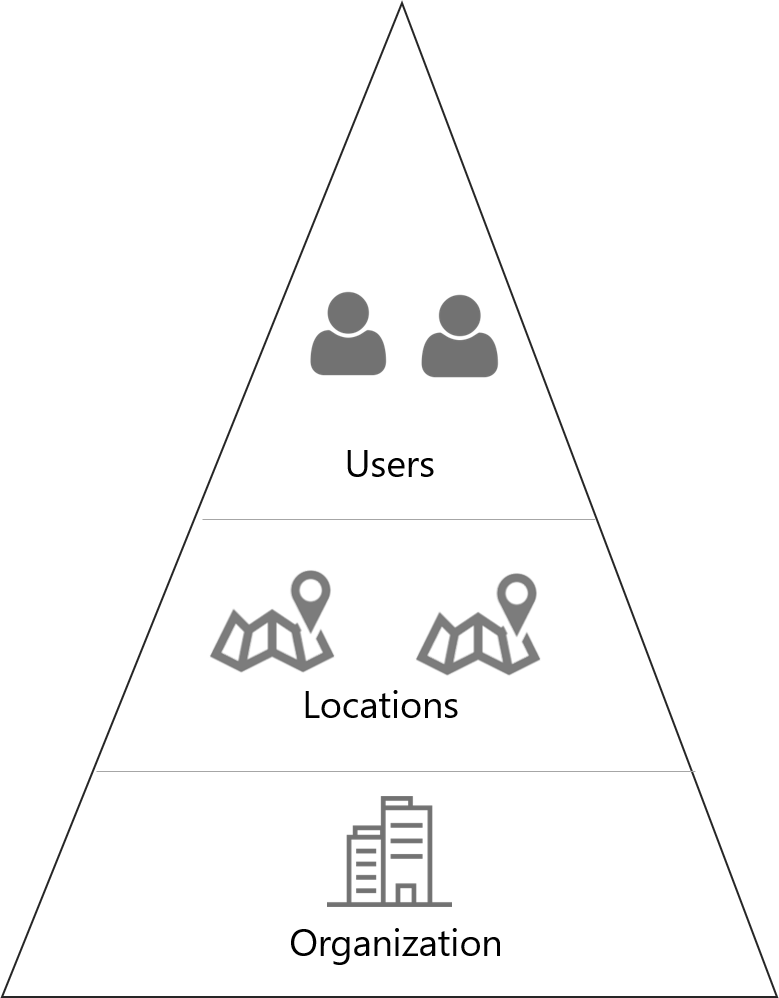
Example
When a case is created, Bizagi calculates the due date of the case and the current active activity.

The activity due date depends on the user that is assigned to the task, therefore considers the user Working Time Schema. See solution date for multiple user assignment. On the other hand, the case due date uses the organization Working Time Schema. If there are multiple organizations, it considers the schema of the case creator's organization. Now assume that you have the following process:
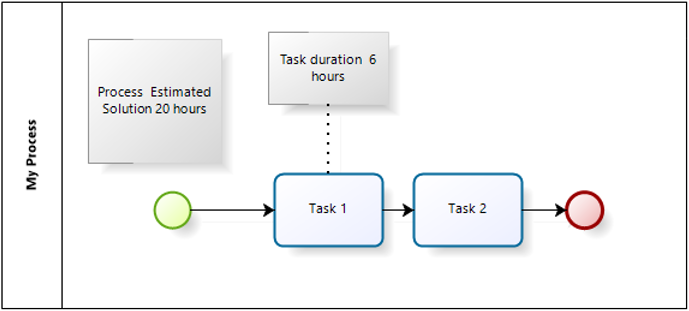
Where:
•Process estimated duration in the model is set to 20 hours
•Task 1 duration in the model is set to 6 hours
The project has Working Time Schema for both the organization and the user that is assigned to task 1:

The user creates the case on Monday at 10 AM, then Bizagi calculates the activity and case due date as follows:
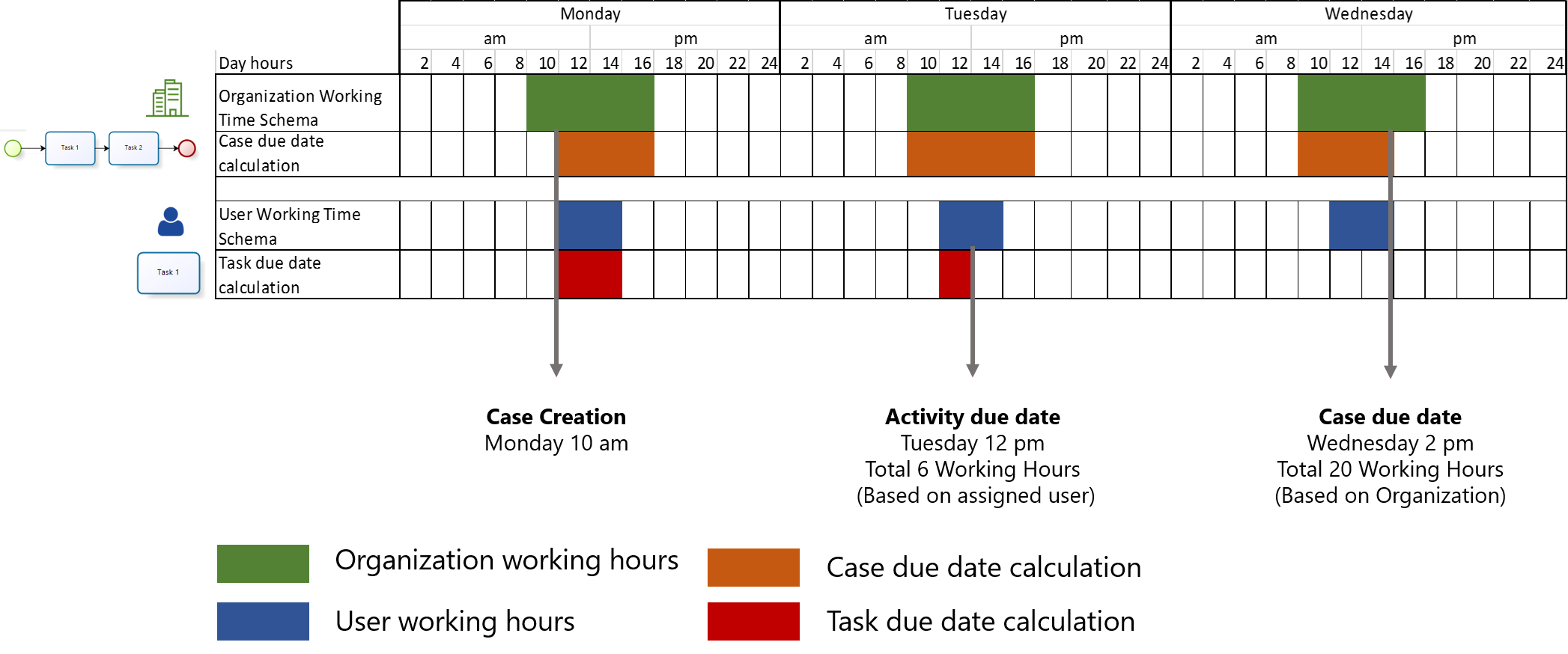
Non-working days
Within the working time schema or using the holiday schema, you can define non-working days. If any of the schema used by the organization or the user has a non-working day, Bizagi considers these non-working days to calculate the activity and case due date.
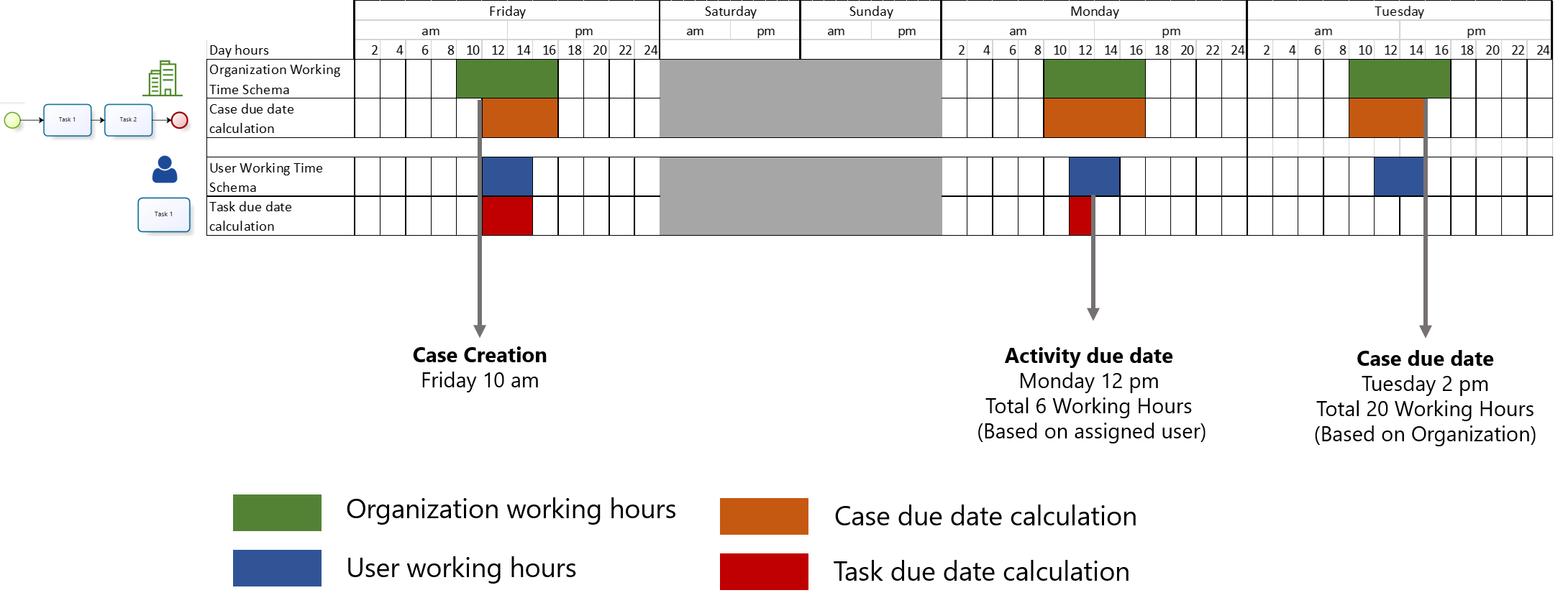
Considering Time Zones
When your organization has branches or users distributed worldwide, you can set time zones, so assignments of tasks and their due dates are calculated according to the time zone. See Timezone management.
For example, your organization is based in Bogota which is located in GTM -5 time zone, and a user of your organization is located in Sydney, which is located in the GTM +10 timezone. Continuing with the previous example, a case is created on Monday at 10 GTM -5, considering the organization's time zone. The user assigned to the task is located in Sydney.
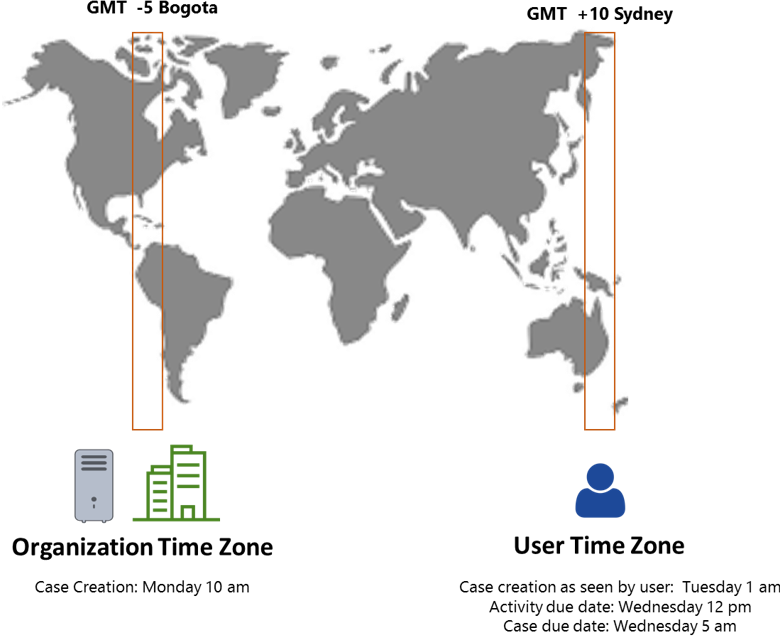
Bizagi uses logic for the calculation of the case due date, different than the activity due date. For the case due date, Bizagi leaves the same hour of the case creation, based on the organization's time zone. Therefore, as seen by the user in Sydney, the case creation is Tuesday 1 am. On the other hand, to calculate the task due date, Bizagi shifts the task creation, so it coincides with the assigned user's timezone.

Last Updated 1/6/2022 4:24:26 PM